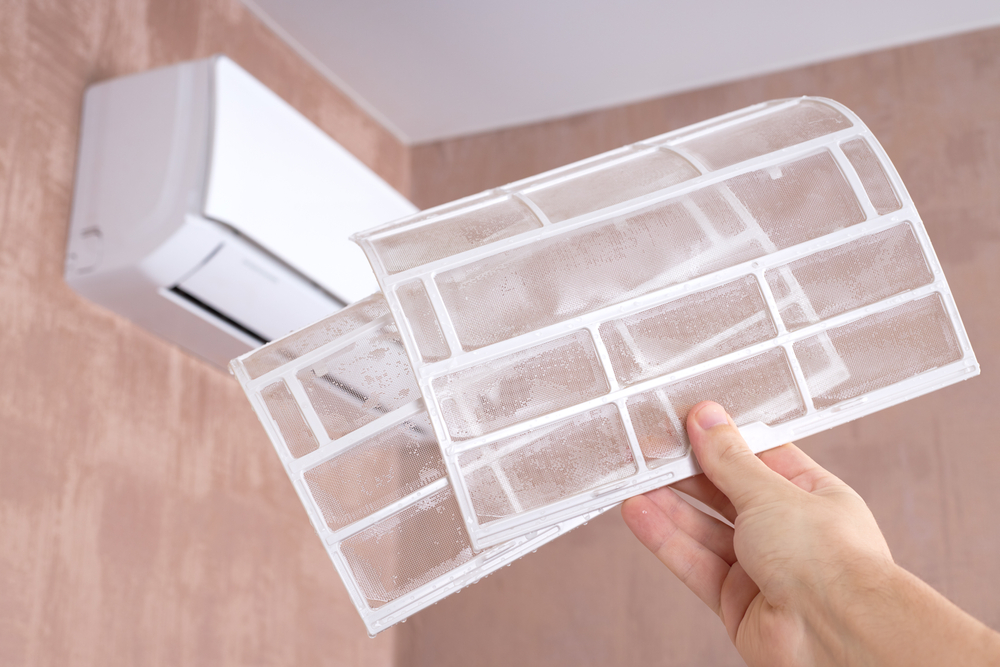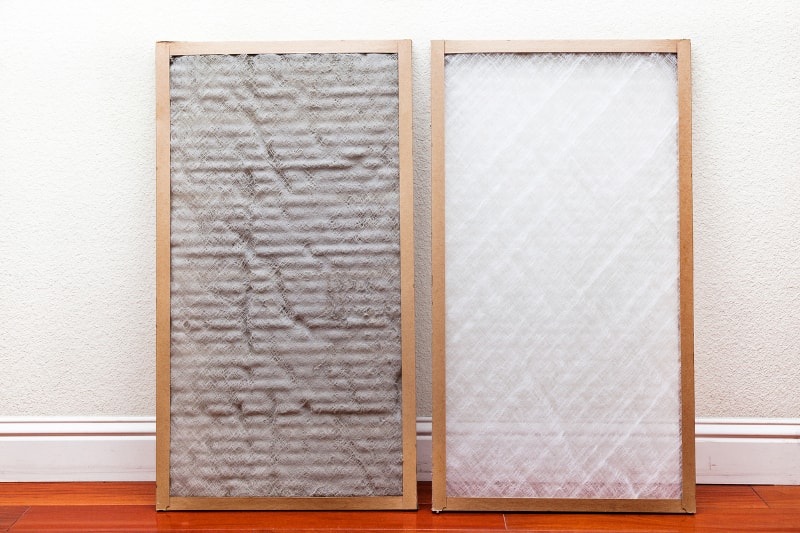Not cleaning your air purifier can lead to serious issues. It can affect your health and the device’s efficiency.
Air purifiers are designed to improve indoor air quality. They remove dust, allergens, and pollutants. But, like any device, they need regular maintenance. A dirty air purifier cannot work effectively. It may even release trapped particles back into the air.
This can worsen indoor air quality instead of improving it. Additionally, a neglected air purifier can strain its components. This can lead to malfunction or a shorter lifespan. Understanding the importance of cleaning your air purifier is crucial. It ensures optimal performance and promotes a healthier living environment. So, let’s dive into the potential consequences of neglecting this essential task.

Credit: www.youtube.com
Importance Of Cleaning Your Air Purifier
Cleaning your air purifier is essential for maintaining a healthy living environment. An air purifier helps remove dust, pollen, and other pollutants from the air. Over time, these particles can clog the filters. If not cleaned, your air purifier will not work effectively. This can lead to poor air quality and potential health issues.
Maintaining Air Quality
An air purifier works by trapping harmful particles. If the filters are dirty, it can’t do its job. This can result in:
- Increased allergens in the air
- More dust and dirt in your home
- Higher risk of respiratory problems
Regular cleaning keeps the filters working efficiently. This ensures that your air remains clean and safe.
Ensuring Optimal Performance
A dirty air purifier struggles to function properly. This can cause several issues:
- Reduced air flow
- Higher energy consumption
- Shortened lifespan of the purifier
By cleaning your air purifier, you help it perform at its best. This not only extends the life of the device but also saves on energy costs.
Here’s a simple cleaning schedule to follow:
| Task | Frequency |
|---|---|
| Clean pre-filters | Every 2 weeks |
| Replace HEPA filters | Every 6-12 months |
| Wipe exterior surfaces | Monthly |
Following this schedule helps maintain air quality and ensures optimal performance.
Health Risks Of A Dirty Air Purifier
An air purifier removes dust, allergens, and pollutants from your home. But what happens if you don’t clean it? A dirty air purifier can pose serious health risks. It can make the air quality worse. Here’s how it affects your health.
Respiratory Issues
A dirty air purifier can cause respiratory problems. It may release trapped dust and mold back into the air. Breathing this polluted air can irritate your lungs. This can lead to coughing, wheezing, and even asthma.
People with pre-existing conditions are at higher risk. They may experience more severe symptoms. Keeping the air purifier clean helps maintain good air quality. This reduces the risk of respiratory issues.
Allergy Aggravation
Dust and allergens can accumulate in a dirty air purifier. When it is not cleaned, it can worsen allergies. Sneezing, itchy eyes, and runny noses are common symptoms.
Allergic reactions can be more frequent and intense. This is especially true during allergy seasons. Cleaning the air purifier ensures it effectively removes allergens. This helps keep your home a safe space for allergy sufferers.
Impact On Air Purifier Efficiency
Keeping your air purifier clean is crucial for maintaining its efficiency. A dirty air purifier struggles to function properly, impacting its ability to clean the air and increasing energy consumption. Below, we explore the specific impacts of not cleaning your air purifier.
Reduced Filtration
A clogged filter reduces the purifier’s ability to clean the air. Dust, pollen, and other particles get trapped in the filter, causing blockages. These blockages prevent the air purifier from working effectively.
When the filter is dirty:
- Airflow is restricted.
- Filtration efficiency drops.
- Air quality remains poor.
Regular cleaning ensures the filter remains effective. This helps maintain optimal air quality.
Increased Energy Consumption
A dirty air purifier works harder to clean the air. This increases energy usage and your electricity bill. When the filter is clogged, the purifier’s motor works overtime.
Signs of increased energy consumption include:
- Higher electricity bills.
- A noisy motor.
- Frequent overheating.
Keeping the purifier clean helps it run efficiently. This saves energy and reduces costs.

Credit: itsjustplumbsmart.com
Potential For Mold Growth
Potential for mold growth in air purifiers can cause serious issues. Mold thrives in certain conditions and can impact health. Neglecting to clean your air purifier increases these risks.
Damp Conditions
Damp conditions inside an air purifier provide a perfect home for mold. Moisture can accumulate in the filter and other parts. This dampness encourages mold spores to grow and spread.
Regular cleaning helps to keep moisture levels low. Remove and clean the filters according to the manufacturer’s instructions. This prevents the buildup of moisture and mold.
Health Hazards
Mold growth in your air purifier can lead to health problems. Mold spores can enter the air and be inhaled. This can cause allergic reactions or respiratory issues.
Symptoms may include coughing, sneezing, and itchy eyes. People with asthma or allergies are at higher risk. Regular cleaning of your air purifier reduces these health hazards.
Shortened Lifespan Of The Device
Maintaining your air purifier is essential. Neglecting it can lead to a shortened lifespan of the device. A dirty air purifier struggles to perform efficiently, which directly impacts its durability. Let’s explore the specific issues that arise from not cleaning your air purifier.
Wear And Tear
Accumulated dirt causes the components to work harder. This extra effort leads to faster wear and tear. The motor, in particular, suffers from this strain. Dust and debris can clog it, reducing its effectiveness.
Additionally, filters become clogged, which forces the device to push harder. The increased pressure can damage internal parts. Over time, this wear and tear shortens the overall lifespan of your air purifier.
Frequent Replacements
Neglecting regular cleaning means you will replace parts more often. Filters will wear out faster. They will need frequent replacements, which can be costly. The motor and other components may also need more frequent repairs.
By not cleaning your air purifier, you end up spending more on maintenance. Frequent replacements add up, making the device less cost-effective. This not only affects your budget but also the device’s longevity.
Increased Maintenance Costs
Failing to clean your air purifier can lead to increased maintenance costs. Neglecting regular cleaning tasks may result in more frequent repairs and replacements. This can add up quickly, burning a hole in your pocket. It is essential to understand the hidden costs that come with a dirty air purifier.
Repair Expenses
A neglected air purifier often suffers from dust and debris build-up. This can cause serious issues with the motor and other components. The trapped particles can lead to overheating, causing the system to fail. Repairing the motor or other parts can be expensive.
Regular cleaning ensures your air purifier runs smoothly. This helps avoid costly repairs. Investing time in maintenance can save you money in the long run. A well-maintained air purifier operates efficiently and lasts longer.
Filter Replacement
Dirty filters can no longer trap pollutants effectively. This means the air purifier has to work harder. Over time, this puts a strain on the system, leading to quicker wear and tear.
Frequent filter replacements are costly. By keeping your air purifier clean, you extend the life of the filters. This reduces the need for replacements and saves you money.
Consider setting a regular schedule for cleaning and filter checks. This simple step can help you avoid unnecessary expenses and ensure your air purifier performs at its best.
Signs Your Air Purifier Needs Cleaning
Cleaning your air purifier is crucial for maintaining its efficiency. Neglecting this task can lead to several problems. Identifying the signs that your air purifier needs cleaning can help you take action promptly. This ensures cleaner air and a healthier living environment.
Decreased Airflow
One of the first signs is decreased airflow. If your air purifier is not pushing out as much air, it is likely clogged. Dust and debris can accumulate on the filter, blocking the flow of air. This reduces the purifier’s ability to clean the air effectively. You may notice that the air in your room feels stale or stuffy. Check the filter and clean it to restore proper airflow.
Unpleasant Odors
Another clear sign is the presence of unpleasant odors. A clean air purifier should not emit any smells. If you start to notice a musty or foul odor, it indicates the filter is dirty. Bacteria and mold can grow on a dirty filter, causing bad smells. This not only affects air quality but can also be harmful to your health. Regular cleaning of the filter helps keep the air fresh and odor-free.
Proper Cleaning Practices
Proper cleaning practices for air purifiers ensure they work efficiently. Without proper care, air purifiers may become less effective. This can lead to poor air quality in your home. Regular cleaning helps maintain performance and extends the unit’s lifespan.
Regular Maintenance Schedule
Establish a regular maintenance schedule. Check the air purifier’s manual for specific guidelines. Most units need cleaning every few weeks. Keep a reminder on your calendar. Consistent maintenance prevents dust and dirt buildup.
Change or wash the filters as recommended. Dirty filters can block airflow. This reduces the purifier’s effectiveness. Regular filter changes keep the air clean and fresh. Clean the exterior surfaces too. Dust can accumulate outside the unit.
Safe Cleaning Methods
Use safe cleaning methods to avoid damage. Always unplug the air purifier before cleaning. Use a soft cloth to wipe down surfaces. Avoid using harsh chemicals. They can damage the unit’s parts.
For the filters, follow the manufacturer’s instructions. Some filters are washable. Others need replacement. Use water and mild soap for washable filters. Rinse thoroughly and let them dry completely before reinstalling.
Clean the sensors and vents. Dust can settle in these areas. Use a small brush or compressed air. This ensures the air purifier runs smoothly.

Credit: millerplumbingheating.com
Frequently Asked Questions
What Are The Consequences Of Not Cleaning Your Air Purifier?
Neglecting to clean your air purifier leads to reduced efficiency. It can accumulate dust, decreasing air quality. This may also shorten the device’s lifespan and increase energy consumption.
How Often Should You Clean Your Air Purifier?
You should clean your air purifier every 1-3 months. Frequency depends on usage and air quality. Regular maintenance ensures optimal performance and longevity.
Can A Dirty Air Purifier Cause Health Problems?
Yes, a dirty air purifier can circulate dust and allergens. This can exacerbate allergies and respiratory issues, affecting overall health and well-being.
Does A Dirty Filter Affect The Purifier’s Performance?
Yes, a dirty filter significantly impacts performance. It restricts airflow, reducing the purifier’s ability to clean air effectively. Regular filter replacement is essential.
Conclusion
Neglecting to clean your air purifier leads to poor air quality. Dust and allergens accumulate, affecting your health. Performance drops, making the purifier less effective. Regular cleaning extends its lifespan. Save money on repairs and replacements. Breathe easier with a clean air purifier.
Stay proactive to ensure a healthier home. Simple maintenance makes a big difference. Keep your air purifier working well. Your health depends on it. Clean it regularly for the best results.
Rakib Sarwar is a Registered Pharmacist and a reputed health and wellness blogger. He has a great interest in Air purifiers.